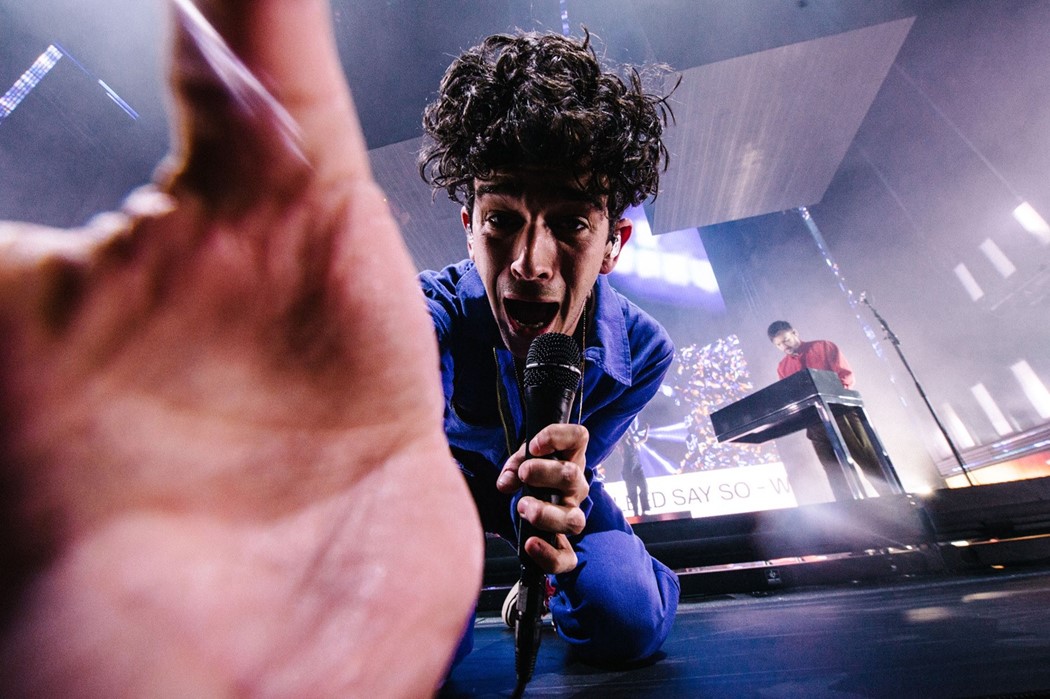Matty Healy Interview: The 1975 Frontman on The Band’s New Stage Show
- TextTom Connick
Backstage at The 1975’s homecoming show at Manchester Arena, Tom Connick meets iconic frontman Matty Healy to discuss what’s being heralded as one of modern music’s most stunning stage shows
You’ll have seen it all over Instagram. The 1975 made their long-awaited return to arena stages this month, with the impossibly ambitious A Brief Inquiry Into Online Relationships tour. Capturing the wondrous essence of their latest record, it’s a stage show like no other. A treadmill at the front of the stage allows the band’s enigmatic frontman Matty Healy to play with perspective as he strolls back and forth, while a ceiling-scraping, illuminated replica of the band’s iconic ‘box’ logo hangs in the air, repositioning itself around the stage with such slickness that half the time you barely notice it moving.
That all takes place in front of 50-foot screen, which itself harbours the show’s most dazzling moment: as Healy takes to a rising platform, the screen reacts to his touch, before he pushes a section in the centre backwards, creating a second platform for him to perform from, 20-foot above the stage itself. Half-theatre performance, half modernist installation, it’s a pop concert taken to its most artful extreme.
Backstage pre-show in the band’s home city of Manchester, Healy couldn’t be further from the mad professor who cooked up these set plans. Reclining in a dressing room sofa, he watches Alan Partridge with his longtime girlfriend, battling off the tail end of a cold. Lighting up his first cigarette in five days – it feels wrong to be interviewed without one, he admits – he talks freely and enthusiastically. At times a motor-mouth, at others considering and strewing over specific words to the point of agony, he discusses the show, his aim of inspiring a new generation of creatives, The 1975’s changing place in wider culture, and much, much more.
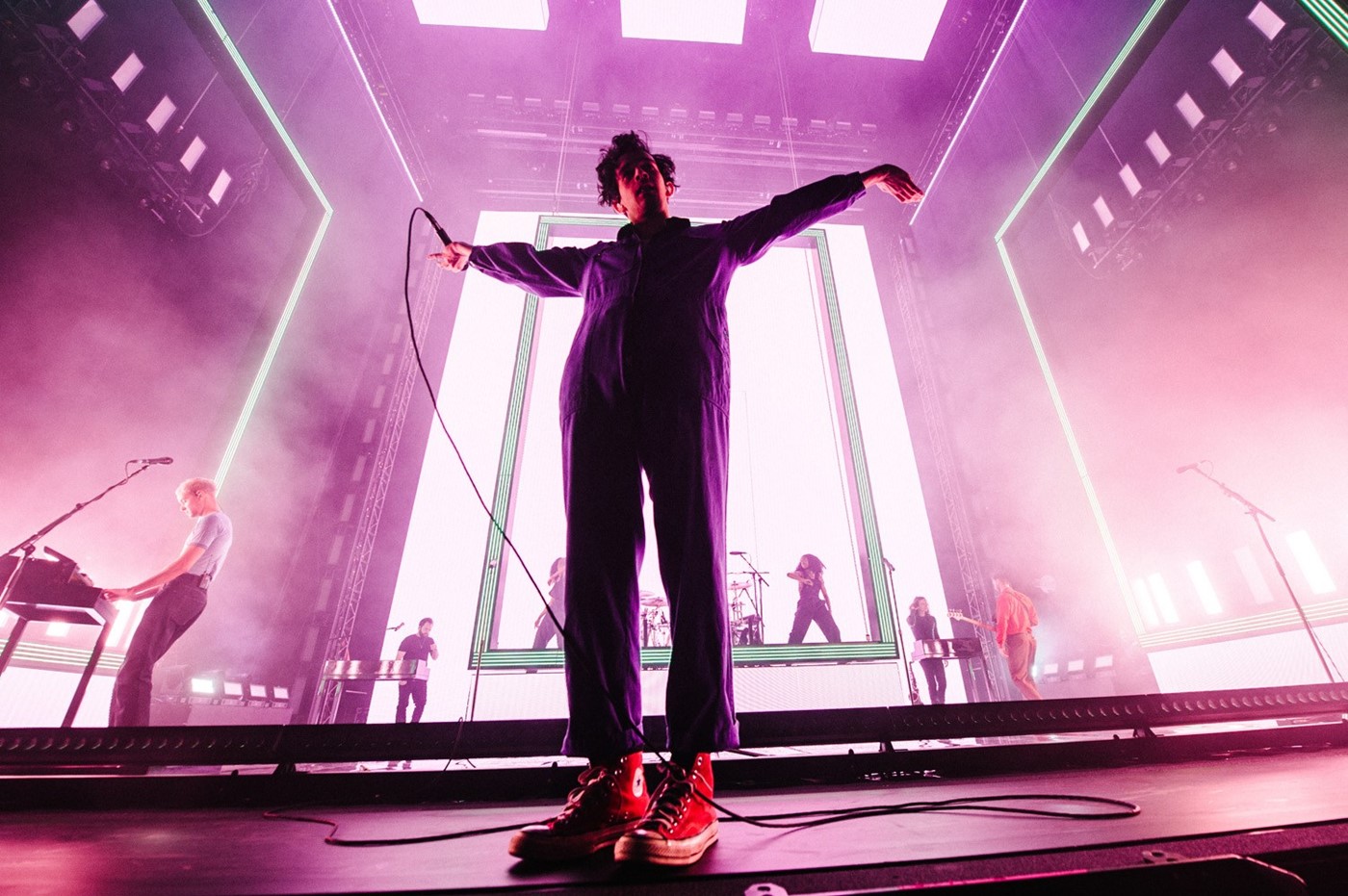
This is your hometown show. Do those kind of things still hold weight?
Matty Healy: Yeah! I’m like ‘Mister Nostalgia’ anyway – I get so nostalgic and I almost work in quite a nostalgic way. Me and my girlfriend were walking around town today and I was being so boring, like, ‘This is the place where we used to rehearse!’, and ‘This is the cool part of town!’, and this and that. I lived in Newcastle until I was eight, but then I moved here and spent my whole life up until I was 23 here. We started the band here, so even if it’s just the amount of people that are coming tonight, it’s really nice to be in Manchester, yeah.
When did you start planning this tour? Was it all concurrent with writing?
Matty Healy: Yeah, it’s all the same thing, man. The studio is us four living together – we did that for a year. That’s all day, so think about it – if you’re all day somewhere, you drift in and out of stuff, you watch videos on YouTube, you get inspired by stuff. Tobias [Rylander, longtime visual collaborator] would come over when we were in LA, and I’d say things like, ‘Instead of the light truss at the front, we should get a treadmill like [Jamiroquai’s] Virtual Insanity.’ That was the main reference for that!
It was all about an exaggeration of the old show. I didn’t want to lose any of the art installation, static-framed beauty of it. I wanted it to be like the record – familiar, but an obvious expansion of it. So we thought, ‘Right, let’s go up.’ We couldn’t really go any wider, so we went up. And then it was like, ‘OK, let’s do super clean lines like that [American Utopia tour] David Byrne show’. But even with [Byrne’s old band Talking Heads’] Stop Making Sense, there were no amps on stage. I didn’t want it to be ‘a rock show’. I also didn’t want it to be like where U2 did that transition where it got too big.
I wanted it to be... obtainable. You can look at it. I’m not flying in on a zipline. I wanted it to be a front-on thing, also, because I knew I was gonna be headlining Reading. I want the show to get better, and better, and better in the run-up to Reading, and then fucking smash it. I didn’t want to have done this show in the round and then do something at Reading that’s…
A stripped-back version of it?
Matty Healy: Yeah! We’re at this point in our career... There’s becoming ‘big’, and then there’s becoming a cartoon. I want to become a cartoon! You know when you see It’s Not Living, and the way the performance is always done with a backing singer – it’s a lot more like theatre. Even in the performance of the band – the videos for It’s Not Living, and Sincerity Is Scary, they’re all very theatrical.
So we had these show ideas: a screen that I could manipulate and touch, and go into it and push it; Tobias wanted to take the things that were on the floor and hang them in some way, that’s where the cubes came from; then we had the treadmill. Tobias took all these different show ideas and made them into one thing. It’s pretty amazing.
That idea of a live show becoming theatre has become quite widespread now. You see it in people like David Byrne, as you mentioned, but also Christine & The Queens.
Matty Healy: Yeah, I think so. I’ve always been really impressed by Christine & The Queens. But I’ve always been battling being in ‘a rock band’. If I get to do a stage show it’s gonna be way more like a Michael Jackson show that I saw when I was younger, or something like that.
It’s interesting, because we are still a band – I’m quite into us being a band, because who’s in a band? [laughs] People care about us, and we’re guys that play instruments. That’s quite a rare thing, and I want to hold onto that. The shape of us – the four silhouettes – I didn’t want to change that too much.
At this point, the appearance of an old friend’s six-month-old baby sparks near delirium from Matty. He runs to the door to cradle and coo the new arrival. A recent Pitchfork interview in which he admits to his desire to be a father springs to mind. “That’s what Manchester’s like, man!” he smiles as he returns to his seat.
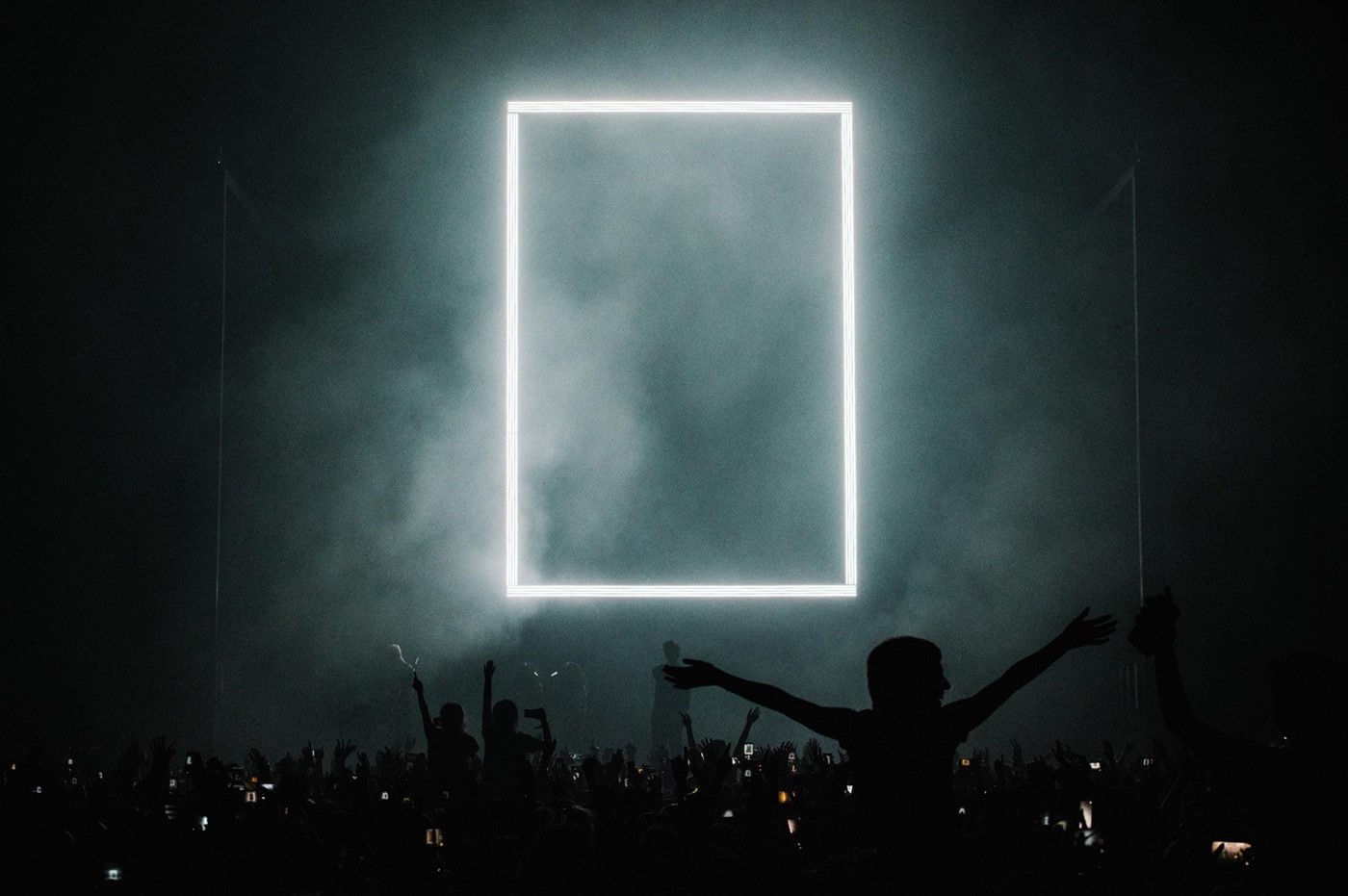
Everyone’s got a baby?
Matty Healy: Everyone’s got a baby! It’s quite nice, because even with I Like It When You Sleep..., when I was being topless and pissed, people were making those graduations. My Instagram was changing to prams and salads – I referenced that. But I was still on the way up, in youth culture as well. A Brief Inquiry… has seen this graduation into who we are now, and I feel a bit better about my place in life, now.
Have there been any surprises? Let’s talk ‘Sellin’ petrol’ – did you know that was gonna become such a meme?
Matty Healy: [Laughs] I didn’t know! You always think things are way subtler, and I thought it was quite subtle in the mix. It was a joke! Hann was like, ‘You can’t do that…’ It’s so schticky, and it’s so funny, but it’s just become a thing. Now there’s kids that come up to me and go, “And he works in a petrol station...” It’s getting even bigger. I like it though, because I’ve embraced that culture. I’ve embraced where we are; I like it. It’s definitely this exaggerated form of community, even if it does get a bit intense and opinionated and polarised. The 1975 is still defined by community and its ability to communicate so fast, so I love it.
Things like that, or when you’ve got things projected on the screen – at the end of Love Me you have “Matty” up there in like 70 different fonts. Is it nice to weave these things into the shows themselves?
Matty Healy: Of course, yeah! Especially when it’s me, because you already know that I know. The ‘Sellin’ petrol’ thing, you know that I’m joking already. There’s loads of gags in there – even the intro, where the screen says ‘(PIANO)’ in brackets.
The way that you negotiate with people, you can be a ‘sexy guy’, or a ‘cool guy’, or charming or endearing – but humour is really important to me. Not that I ever want to be slapstick, because I make... [winces] art. You’re gonna have to write that in a way that doesn’t make me sound like a dick, but when I’m making stuff I take it seriously. But I don’t take myself seriously. You can’t do Love Me now – it was already a take on the joke of a rockstar persona, but I was kinda still on a knife-edge there. Whereas now, I think there’s so much self-knowing on Brief Inquiry that I have to do those kinda gags.
What else has changed?
Matty Healy: Now, I’m not inspired to talk as much on stage. There’s so many ideas on stage, and in the last record, that when you combine it with the old stuff I feel like I’m saying quite a lot anyway. With your ‘Matty’ gags, et cetera. There’s so much on-the-nose text… or maybe I’m just over the whole diatribe, self-interested thing! [laughs] I just want it to be this exaggeration of what you expect from The 1975.
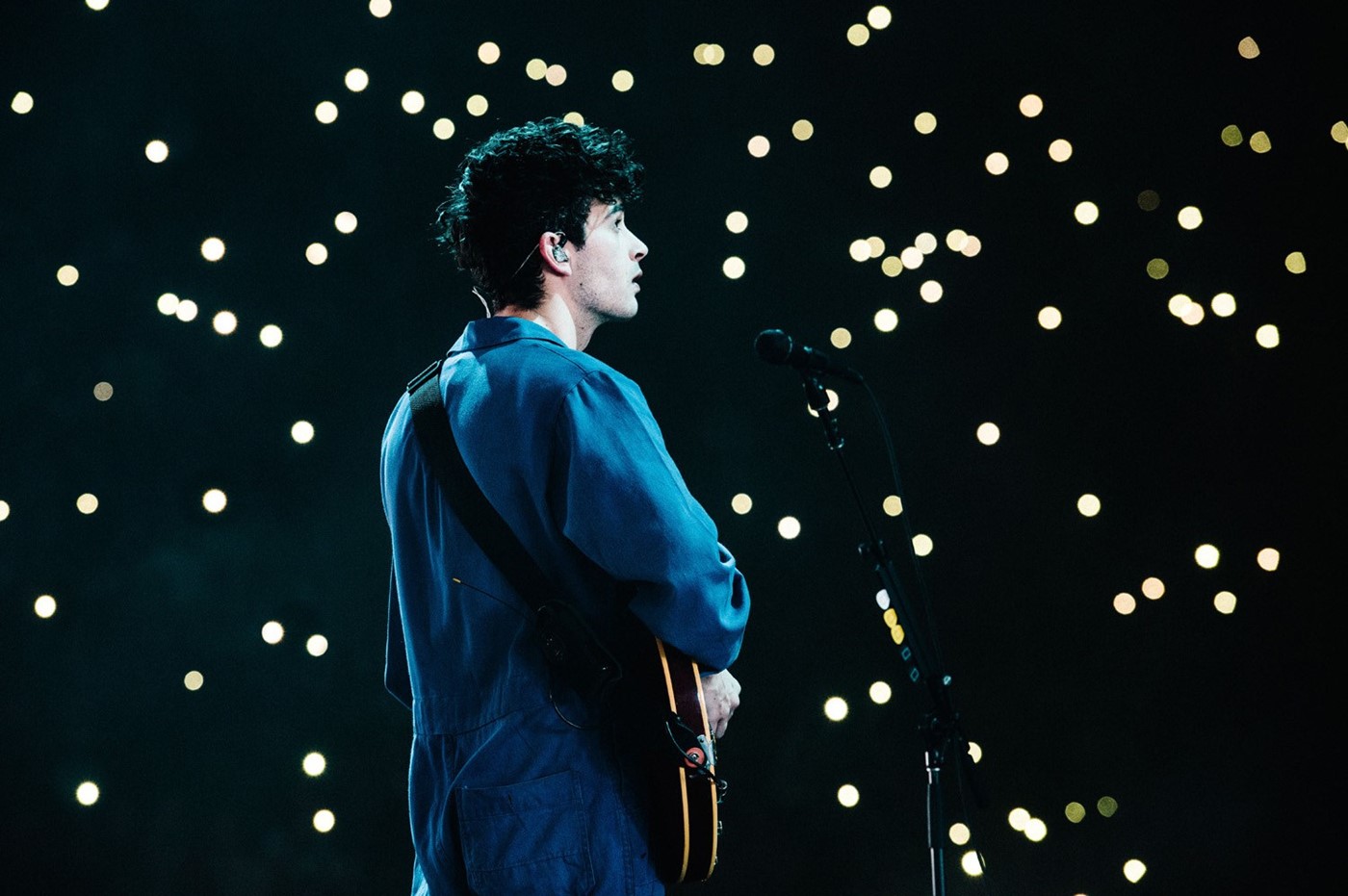
How much room do you leave yourself for spontaneity?
Matty Healy: That’s a good question. The set’s changed quite a lot, which keeps it fresh for us, because we change it every night. At the moment it’s still a very fresh show for me, and I think that mood really dictates me, dictates my records – my attention span dictates my records, quite obviously – and I think that I don’t get that bored with life. I don’t feel that I’m in the trudge, that much. Every day is quite different, and every show is quite different.
It’s a really weird thing to do. If you’re the best of the best solid performers in the world – Beyoncé, those kind of people – there probably is an element of ‘change into: performer’. Whereas I don’t do that with my records at all. It takes so much energy to not be me – hide being nervous, over-rehearse. People want to see a person, right?
That’s what I mean about Reading. I want Reading to be logistically slick – I don’t want things to break; I don’t want to drop the mic like in Love It If We Made It [at Camden Assembly last month]. But I don’t want me to be slick at Reading – I want people to be watching somebody have their teenage mind blown for two hours. Because that’s what I would wanna see! Not that I don’t think that I have a duty as a rockst–, popst– whatever I am, to stand there and be that. And I don’t want to be crying all the time and making it all about my experience. But I wanna be falling over my mic lead and fuckin’ being there.
What’s next, then?
Matty Healy: Because we’re in this hyper-productive period of our career, we know that the show has to move forward. By the time we get to South America, we’ll have new stuff in the set. We’ll have new production things. We’ve got two shows at The Roxy in LA, and we’re using the venue as two rehearsal days beforehand, so we can rehearse new stuff to take around America. By the time we get back to the UK, I want it to be as impressive, and new. I want you to come and see us in festival season and see I Couldn’t Be More In Love, and different things with equal amounts of... good. [laughs]
It’s not just a case of just sticking up a different video on the backdrop.
Matty Healy: No, and that’s what’s been so difficult! Every song that we want to play needs good, bespoke content. So going, ‘Oh, I want to play this’ – we can do it, but it takes a lot of work. The songs that sit on the outside of the set have still had days and weeks of work done, even if we only play them once or twice.
The whole thing is so ‘Instagrammable’. To go from the last tour, where you were encouraging people to spend at least one song with their phones in their pockets, to this – have you just accepted how it is?
Matty Healy: To be fair, there was a lot more acceptance in that last show. Those screens were essentially invented for us because we had to get new screens made where the pixels were closer together. When we first loaded it in and turned it on, the first thing me and Tobias did was get or phones out, filmed it, and it was all [makes a noise like a shredder tackling a sheet of tin foil]. We were like, ‘Well, we can’t do it’. This is our promo, this is our message. The phones are the medium, regardless of whether we’re all ‘watch out, sheeple’ or not, this is what’s going to be used.
But that was also two years ago! Two years in the 21st century, so much happens. My philosophy on the whole thing’s changed. Even Brief Enquiry with its big-ness, there’s not really a lot of my opinions. There’s no opinions about whether the internet is good or bad – there’s just objective things, and references to things that we all know exist. The thing with me and the phone – it doesn’t eat me or anything, I don’t get consumed by it, I just want to, by choice, get in the phone. [laughs]
I’m not judging anyone, because that’s all so fake – virtue-signalling, or vice-signalling. I don’t want to be not on Instagram so that I get seen by people on Instagram to not be on Instagram. But I’m also growing up a little bit, and I’m using my social media a lot less. I dip in and out of it – some months I think I’m a comedian, like we all do! But there’s not a lot of opinion in there. There’s quite a lot of hope in what we’re doing.
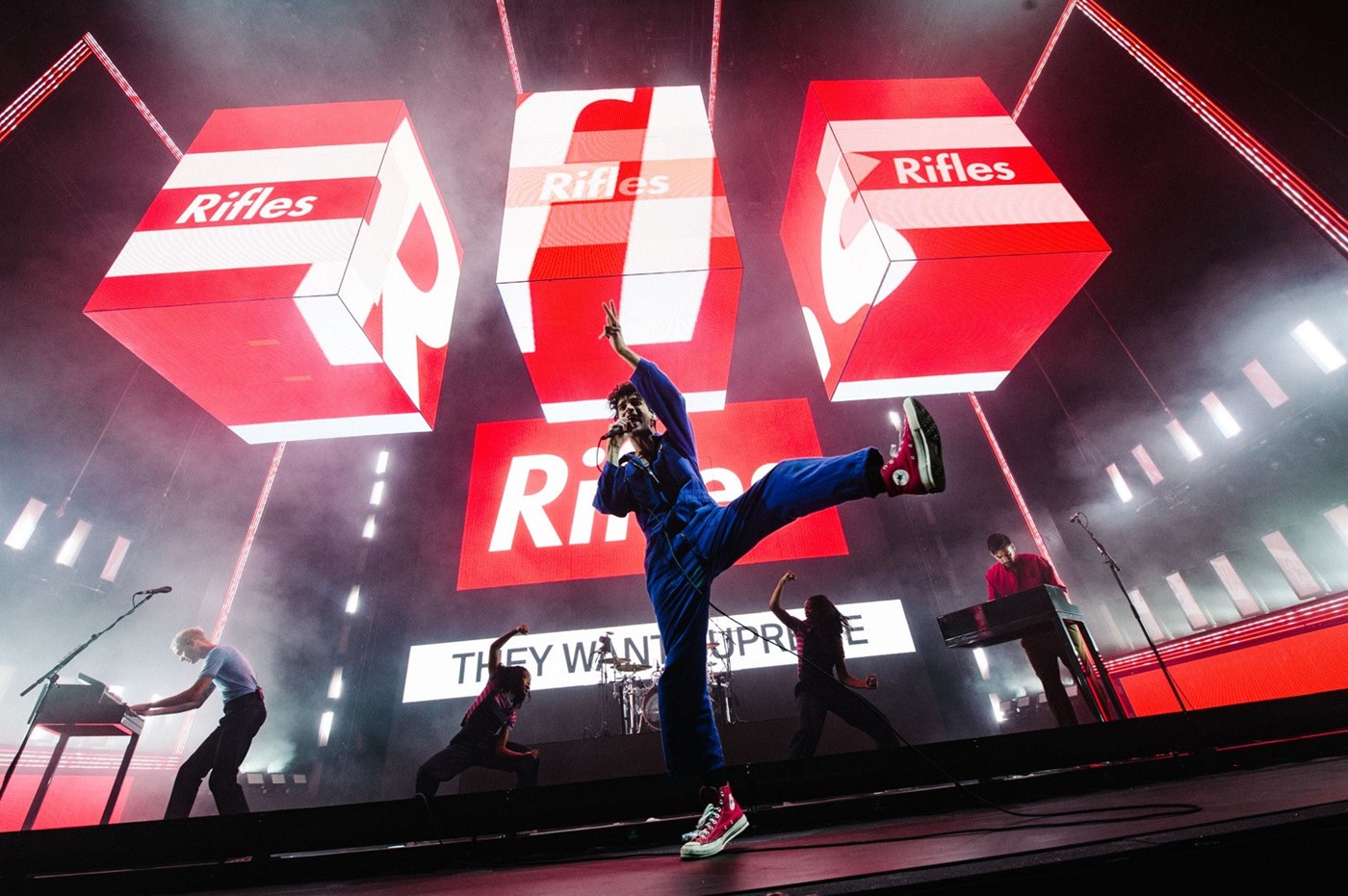
That seemed to be a common thread in the reaction to the record – the fact that it was the first record about the internet that wasn’t–
Matty Healy: ‘Watch out, sheeple?’
Exactly.
Matty Healy: Basically the only realisation that I had was that all of our communication was mediated through technology, which is a non-interesting observation to have. Of course it is. But explaining the idea to someone even ten years ago that the experience of the internet is so total – that person would be like, ‘Why? How? To what end?’ You can’t write a record about our relationships in 2018, without referencing the internet.
Now, using language that is too new makes anybody recalcitrant, in art. Katy Perry’s use of ‘epic fail’ in that song... [shudders]. It’s difficult, because the narratives of love songs have to change. This whole thing of, ‘My love, in a distant land, I can picture your face’... I could also just get you on FaceTime quite easily. But Neil Young’s not gonna pop a reference to FaceTime in there!
That idea of everything being mediated is pretty core to Guy Debord and Society Of The Spectacle, which you’ve referenced before. There’s also the idea of the ‘carnival’ as a distraction. That’s kind of what these shows are. Do you want people to be distracted by ‘real life’ when they come see you?
Matty Healy: 100 percent. I think that the situationists were super-cool, and super-chic, and super-clever, and super-full-of-shit. And I love that about them. I love the way that they tagged onto slightly more important movements in a superficial way. I just find them very interesting, the same way I do the Beats, in that I love them, but I couldn’t deal with any of it. They take themselves way too seriously – I’d want to watch Love Island after 20 minutes!
Politicians, leaders, activists – they’ve inspired me. But the people I think who’ve really taught me how to live are artists. I don’t aspire to teach people how to live, but I aspire to be an artist. And I think that if I’m going to do that, there needs to be an element of escapism and information.
I’m an artist – I shouldn’t be devising a utopia; I shouldn’t be sorting out Brexit. But I can be signposting to utopian ideals that maybe might reach people on a different political spectrum. It’s music – it doesn’t have an agenda. People can’t control the way that their body feels when it happens to them, and if that’s your medium, it seems quite a powerful thing to have.
I want people to come to the shows, and leave thinking about who they are. What I love is when you can see young people watching the whole thing, and you can see they’re thinking, ‘I wanna do that.’ That’s what I was. I want people to go away and be more inspired. And if that’s going away and being more conscientious socially, that’s a big thing, but even if it’s just buying a guitar, then that’s a good thing.
You’ve always had kids on your side, but these last two records have really brought the adults around as well, in some ways. Is that vindicating?
Matty Healy: There’s never any vindication, because I’ve always understood it. The whole postmodernism of me as a rockstar – me going, ‘ooh’, ‘yeah’, ‘do you love it?’ – I knew that me at 29, if I’d gone to see this new band... if I saw somebody that I thought was trying to be Jim Morrison, I would hate them. So if I turn up at a festival and I’ve got a song-and-a-half, you don’t have that level of context. I think that I’ve been a slight thorn in people’s sides, because I’ve been unapologetic, or excited – and, especially in England, you don’t want to be those two things. Especially with no top on! I think people missed the self-reference, and the self-awareness.
But we’ve also been getting better. Would I love... [pauses] Yeah, I would love the first record. I’d love the first record now. But when I was like 24 to 27, I was super cool. I would not like stuff because it was ‘uncool’. Now, especially if it’s a bit emo, everyone thinks it’s the coolest thing in the world. Emo, when I first came out, was not cool – not like it is now.
There’s not as much genre in our affiliates. There’s way less genre than there was before we turned up – I think that’s a fair thing to say. Like I was saying about the cartoon or getting big thing, I’m starting to feel like we’ve been quite an influential band. And being influential the one for me – Velvet Underground were influential! [smiles] I wanna be an influential cartoon rather than a boring, big band.
The iconography helps there, too. The box logo, or the evolving stage setup, or the self-reference – it’s all becoming part of something bigger.
Matty Healy: It’s weird, isn’t it? It’s weird for me. The result of all these ideas... not branding, but like... branding. [smiles] In a Warholian sense! The idea of being bigger than yourself. Love & Rockets was this comic that I always loved, and it was about this post-punk group of teenagers that had these cropped suits. They were a cartoon of an idea. I’ve always wanted that. If I’m gonna be in a band, I want people to know who we are without any front light. The coolest bands, give me their silhouette, or their hair, and I’ll tell you who they are. Otherwise what’s the point?
The 1975 tour the world this year
